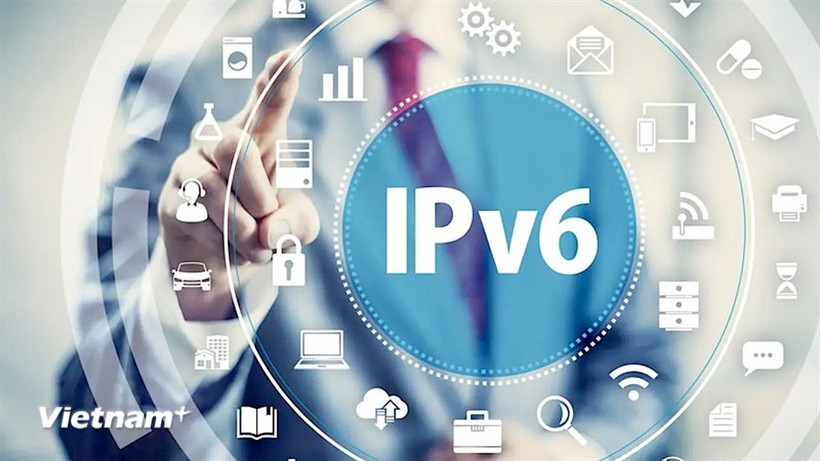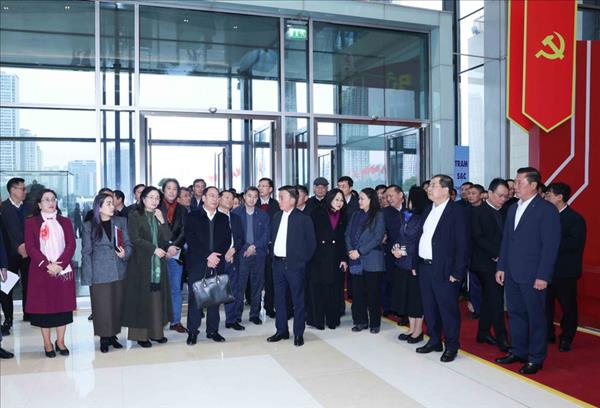The Ministry of Science and Technology has issued a decision approving a programme to promote and implement IPv6-only transition in Vietnam for the 2026–2030 period, aiming to speed up the country’s full transition to IPv6 and strengthen its digital infrastructure.
This is a key programme designed to modernise the national Internet infrastructure and meet the growing demand for new and high-quality services such as the Internet of Things, smart cities, cloud computing, and next-generation telecommunications networks including 5G and 6G.
The programme will be coordinated by the Vietnam Internet Network Information Centre (VNNIC) under the Ministry of Science and Technology, with participation from various units under the Ministry of Science and Technology, specialised IT and digital transformation agencies at ministerial and local levels, as well as major telecommunications groups and domestic providers of Internet, data, and online content services.
The programme aims to lift the ratio of IPv6 usage to 90–100% by 2030, placing Vietnam among the world’s top 20 countries in IPv6 adoption and contributing to technological innovation and the development of national digital infrastructure.
All telecommunications enterprises, data centres, digital content providers, and state agencies will fully transition to IPv6-only, offering default and stable services on this platform.
Three-phase transition roadmap
The Ministry of Science and Technology has outlined a three-phase roadmap for Vietnam’s transition to IPv6-only.
The 2026–2027 period will focus on preparation—planning, resources mobilisation, and small-scale IPv6-only trials, mainly within core networks, mobile networks, and state agencies’ systems.
During this phase, a detailed roadmap will be developed, assessing the current infrastructure, devices, applications, and IPv6-supporting software, along with specific policies and measures—particularly default IPv6 usage, phasing out production and import of non-IPv6-compatible equipment and software, and researching new systems designed as IPv6-only from the outset to enable breakthroughs, services, and new value creation.
The 2027–2028 period will accelerate large-scale IPv6-only adoption, initially focusing on core networks, mobile networks, Wi-Fi access networks, and systems of state and central agencies, followed by fixed and mobile broadband (4G, 5G, 6G) and digital content systems. This phase will prioritise deploying new systems designed as IPv6-only from the start to create breakthroughs, services, and new value, aiming for 80–90% IPv6 usage and gradually phasing out IPv4 on most networks and services, except for certain specialised systems.
In the 2029–2030 phase, the programme aims for full IPv6-only deployment across Vietnam’s Internet, gradually phasing out IPv4 in line with global trends. IPv6 usage is expected to reach 90–100%, placing Vietnam among the world’s top 20 countries in IPv6 adoption, ensuring high connectivity, security, and performance, and supporting technological innovation and national digital infrastructure development.
IPv6-only transition remains key priority in 2026 - 2030
The programme identifies IPv6-only transition as a key task for 2026–2030, focusing on core networks, mobile networks, Wi-Fi networks, state agency systems, fixed broadband, data centres, cloud computing, and digital content services.
Since 2021, Vietnam has maintained steady growth in IPv6 adoption and has consistently ranked among leading countries in the transition to IPv6. According to data from the VNNIC, by the end of October 2025, Vietnam’s IPv6 usage rate reached 65%, ranking second in ASEAN and seventh globally.
The global transition to the next-generation IPv6 Internet officially began on World IPv6 Day (June 8, 2011), followed by World IPv6 Launch (June 6, 2012). In November 2016, the Internet Architecture Board (IAB) announced the end of IPv4 standard development to focus on protocols operating with IPv6. In Vietnam, IPv6 addresses were first introduced in 2004 by the VNNIC under the Ministry of Information and Communications (now the Ministry of Science and Technology).
IPv6-only is an inevitable trend to support the development of the Internet of Things, industrial Internet, 5G/6G deployment, AI, and other emerging technologies. Since 2021, Vietnam has maintained steady growth in IPv6 adoption and has consistently ranked among the leading countries in the transition./.


















